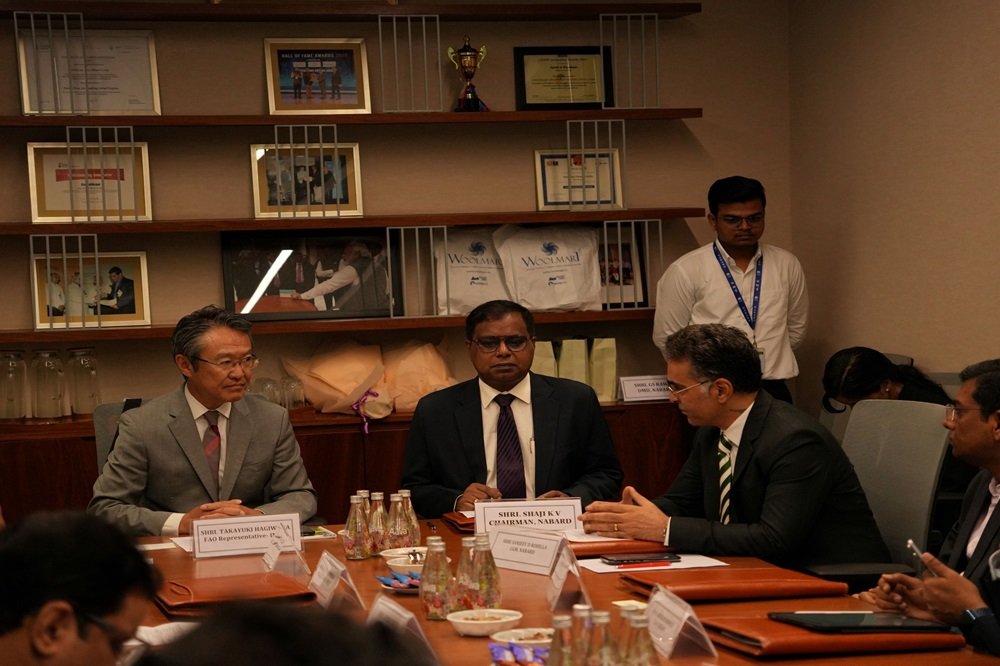Friday, 20 February 2026

In a significant move to accelerate India’s green transition in the agriculture sector, the Food and Agriculture Organization of the United Nations (FAO) and the National Bank for Agriculture and Rural Development (NABARD) convened a high-level workshop in Mumbai to operationalize their recent Memorandum of Understanding (MoU). The collaboration aims to unlock innovative financial mechanisms, scale carbon finance, and embed climate resilience into the core of India’s agriculture.
With over 60 per cent of India’s land under cultivation and nearly half the population dependent on farming, building resilience to climate shocks is a strategic imperative. India has already launched several initiatives under the National Mission on Sustainable Agriculture to promote climate-smart, resource-efficient farming systems. Recognizing the transformative potential of carbon markets, the government is advancing enabling policies such as the Voluntary Carbon Market for Agriculture and the Carbon Credit Trading Scheme to reward sustainable practices and incentivize farmer participation.
The NABARD–FAO partnership is designed to align with these national efforts, focusing on innovative carbon finance models that centre smallholder farmers as primary beneficiaries. The workshop brought together senior leadership, technical experts, and stakeholders to co-develop an action plan and set the groundwork for launching the India Voluntary Carbon Fund (IVCF), as well as a concept note for the Green Climate Fund (GCF) to strengthen long-term access to climate finance.
In his keynote address, NABARD Chairman Shaji KV reiterated the institution’s resolve to place India’s agricultural sector at the forefront of global climate action. He announced the establishment of a Rs 300 crore Carbon Fund to support early-stage projects with strong potential to generate high-quality carbon credits. The fund will catalyse private sector participation while supporting Farmer Producer Organizations (FPOs) and cooperatives as credible project developers. He highlighted FAO’s technical depth and global perspective as crucial assets in adapting solutions to India’s local contexts, ensuring inclusive and equitable benefits for smallholder farmers.
FAO Representative in India Takayuki Hagiwara emphasized that the Carbon Fund must be anchored in simplicity, transparency, and accessibility. He stated that the success of the initiative hinges on putting smallholders at the heart of the transformation. Hagiwara also underscored the pivotal role that FPOs can play in mobilizing farmer participation and shaping a farmer-centric carbon ecosystem, noting that the Fund is not just about carbon—it represents a lever for systemic rural transformation.
The workshop featured intensive technical discussions on unlocking public, private, and philanthropic capital through innovative financial instruments. A major focus was on building the capacities of FPOs to act as facilitators within carbon market value chains and ensuring that market participation is viable and beneficial for India’s marginal and resource-poor farmers.
Concluding the day, both NABARD and FAO reaffirmed their joint commitment to developing an operational roadmap that supports climate-smart investments, fosters equitable growth, and transforms India’s agrifood systems through sustainable finance and carbon innovation.